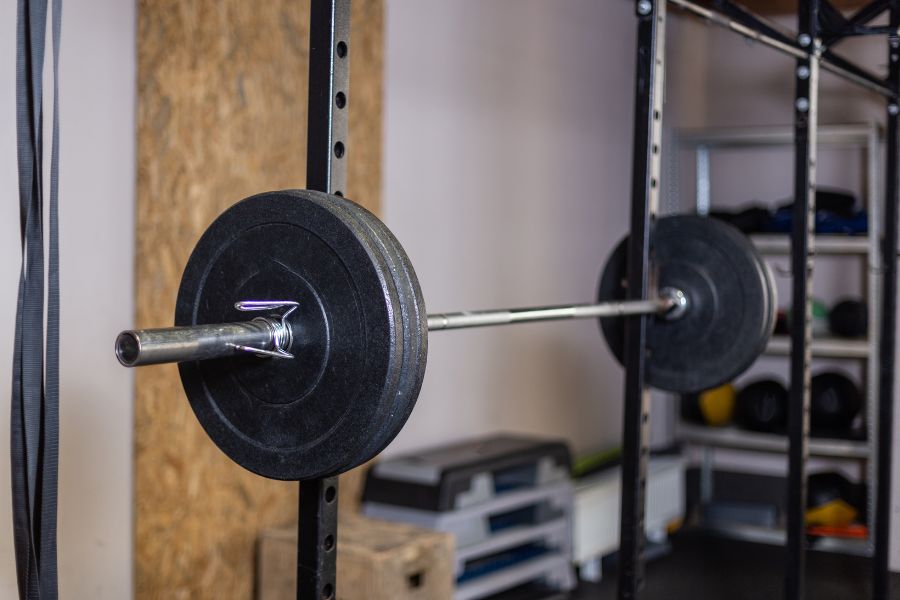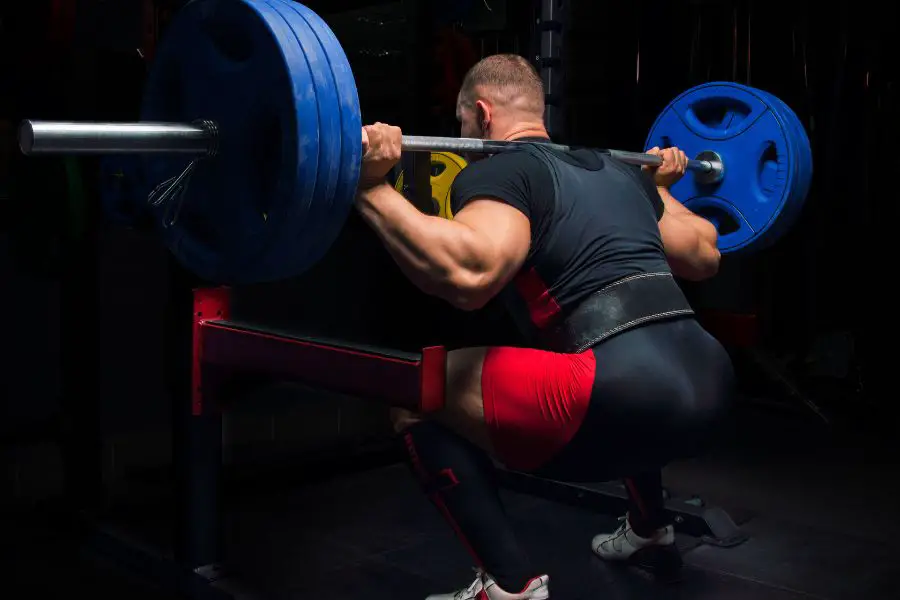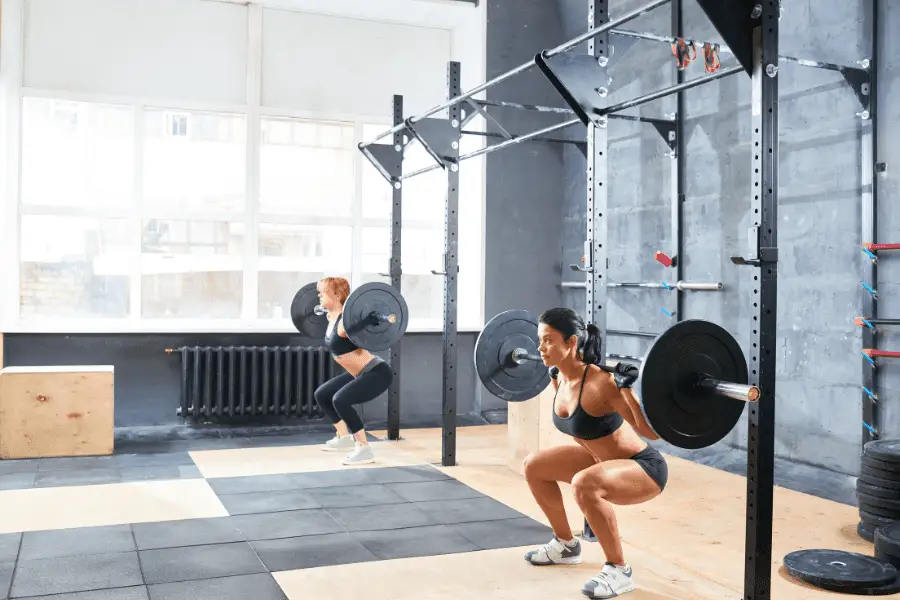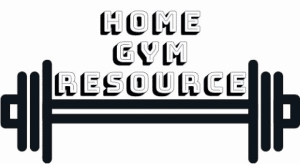A squat cage should be ready to handle all the weight you want to lift. But weight limits vary widely. What can you expect and how can you recognize a power rack that can handle a lot of weight? That’s what we’ll go through in this article.
Most power racks for home use have a weight capacity of 500 to 1000 lbs. Low-end and Mid-range Squat cages can generally hold 500-850 pounds while high-end models can handle 1000-1500 pounds or even more. Most racks should be bolted to the floor to utilize this limit safely.
Find out how much weight different racks can handle and what is a good rack for you below. Or you can click here to find my favorite rack for home gyms.
Contents
Power Rack Weight Limits
Different power racks, also known as squat cages or power cages, have widely varying load limits, which are crucial for understanding the rack’s capabilities and build. Let’s delve into the distinctions among the models on our list and decipher the significance of these weight limits.
The power rack load limit represents the maximum weight, which includes the barbell and plates, that you can safely place on the J-cups without risking damage or compromising safety. Essentially, it’s the “rackable” weight limit. The total weight you could put on the rack including weight pegs is generally much higher.
| Brand | Model | Rackable Weight Capacity (Pounds) |
|---|---|---|
| Titan Fitness | T-2 | 850 |
| Titan Fitness | T-3 | 1100 |
| Titan Fitness | X-3 Bolt Down | 1650 |
| Titan Fitness | X-3 Flat Foot | 1650 |
| Rogue | RML-390C | Not indicated |
| Rogue | RML-490C | Not indicated |
| Rogue | RML-390F | Not indicated |
| Rogue | R-3 | Not indicated |
| Rogue | RM-4 | Not indicated |
| Body-Solid | GPR378 | 800 |
| Body-Solid | GPR400 | 1000 |
| Body-Solid | SPR1000 | 1000 |
| Hulkfit | Pro Series Power Cage | 800 |
| Fitness Reality | 810XLT | 800 |
| Sunny Health | Power Zone Strength Rack | 1000 |
| REP Fitness | PR-4000 | 1000 |
| Rep Fitness | PR-5000 | 1000 |
| Cap Barbell | Power Cage 6’ | 500 |
| Cap Barbell | Power Cage 7’ | 500 |
| Signature Fitness | SF-3 | 1500 |
| Fitness Reality | X-Class | 1500 |
| Fitness Reality | 810XLT | 800 |
| HulkFit | 1000 | 1000 |
| Papababe | Power rack | 1200 |
| Merax | 1000 | 1000 |
Some observations you can make from that table;
Some low-end racks have a 500-pound weight capacity. This is an indication that thinner and/or lower-quality steel has been used as well as smaller upright posts.
Having a lower load limit than needed can limit your lifting progress, making it essential to choose a rack with an appropriate load capacity. While there’s no downside to opting for a rack with a higher load limit, it usually comes at a higher cost. Are they still worth it? Find out in this article.
The load limit isn’t the only thing you should look at when buying a power rack but it’s an indication of construction quality and should be able to support your weightlifting goals.
The load limit doesn’t tell the whole story though. Some racks will feel solid, even up to the load limit whereas for other racks, that is really the absolute limit.
It’s worth mentioning that Rogue Fitness doesn’t specify load limits for their racks. While this might raise concerns for lesser-known brands, Rogue’s reputation for producing robust and trustworthy products offers confidence.
For instance, the R-3 and RML series racks can likely handle loads exceeding 1000 lbs., possibly even up to 1200 lbs., given their construction, upright posts, and overall build quality. The RM series can probably handle even more than that. To give you an indication, the J-cups that come with those racks are rated for 1000 pounds each…
What Influences Squat Cage Load Capacity?
When it comes to selecting a squat cage for your home gym or commercial facility, understanding the factors that influence its load capacity is crucial. The load capacity of a squat cage determines how much weight it can safely support during your workouts.
Several key elements play a pivotal role in determining a squat cage’s load capacity:
1. Uprights Dimensions
One of the primary factors affecting a squat cage’s load capacity is the dimensions of its upright posts. The size and thickness of these vertical supports significantly impact the overall structural integrity of the cage. Squat cages with larger and thicker uprights tend to have higher load capacities.

In general, squat cages with 2″ x 2″ upright posts are common in entry-level and budget-friendly models. These racks typically support weights ranging from 500 lbs. to 800 lbs. While suitable for many individuals, they may not be ideal for advanced lifters or those seeking to push their limits.
Mid-range squat cages often feature 2″ x 3″ upright posts, providing additional strength and stability. These racks typically boast load capacities ranging from 700 lbs. to 1200 lbs., making them suitable for a broader range of lifters and exercises.
At the high end, squat cages with 3″ x 3″ upright posts offer exceptional strength and rigidity. These racks can handle well over 1000 lbs. without compromising safety or stability, making them the preferred choice for powerlifters and serious strength enthusiasts.
2. Steel Gauge
The gauge of the steel used in the construction of a squat cage’s frame is another crucial factor affecting load capacity. The lower the gauge number, the thicker and more robust the steel. Thicker steel adds durability and contributes to a higher load capacity.
Entry-level squat cages typically use thinner steel with higher gauge numbers, such as 14-gauge or 16-gauge. While these racks are cost-effective and suitable for many users, they may have load limits in the 500 lbs. to 800 lbs. range.
Mid-range cages often feature 11-gauge or 12-gauge steel, which strikes a balance between affordability and strength. These racks can safely support weights ranging from 700 lbs. to 1200 lbs.
High-end squat cages prioritize strength and longevity, utilizing thick 11-gauge or even 10-gauge steel. These cages offer unrivaled load capacities, well exceeding 1000 lbs.
3. Construction
The overall construction of a squat cage, including its welding quality and design, significantly influences load capacity. A well-constructed cage with sturdy welds and reinforced connection points is more likely to handle heavy loads without issues.
Squat cages with reinforced cross-bracing and additional support structures tend to exhibit higher load capacities. Premium models often incorporate advanced engineering and precision welding techniques to ensure the utmost strength and stability.
4. J-Cups/Spotter Arms/Safety Pins

The accessories provided with a squat cage, such as J-cups (barbell holders), spotter arms, and safety pins, can also impact load capacity. These components need to be robust and reliable, as they play a vital role in ensuring your safety during heavy lifts.
A squat cage equipped with heavy-duty J-cups and spotter arms rated for high loads enhances its overall functionality. Safety pins should also be durable and capable of supporting substantial weights.
Choosing the Right Weight Limit for Your Home Gym Power Rack
Determining the appropriate weight limit for your home gym power rack goes beyond simply choosing a limit below your lifting capacity. Here are important considerations:
Considering these aspects, it’s advisable to choose a rack that can handle at least 30% more weight than your intended maximum lift. This offers a safety margin and allows for future strength gains.
Consider your future strength goals when picking a squat cage. They last for a very long time if treated right so it’s better to buy one you can ‘grow into’.
For example, if you presently squat 300 lbs. and plan to reach 450 lbs. in the future:
450 lbs. +30% = 585 lbs. Look for a power rack with a load limit of at least 585 lbs.

Moreover, power racks with lower load limits (500 lbs. and below) often indicate lower overall quality and stability. Opting for a sturdier rack ensures a more stable and long-lasting investment, even at normal weights. Looking for a load limit of 700 pounds or more is a good way to get a better, stabler rack.
In summary, when selecting a power rack, it’s wise to consider both your current and future lifting goals, ensuring the rack’s load capacity can accommodate your progress and provide lasting durability for your home gym.
Safety Considerations
When you’re pushing the limits of your rack, it’s important to keep some things in mind to stay safe.
FAQ
What are J-cups?
J-cups are the two hooks that can be mounted on the upright posts of a power rack or squat stand. J-cups are used to rest the barbell on while not using it. Gravity holds the barbell in place and the little hook helps keep the barbell from rolling off. The top is open so you can easily lift the bar off.
Can the spotter arms handle the same load as the rack?
The rackable load limit is almost always also the minimum load the spotter arms or safety pins can handle. However, be aware this might be a static limit and not for a moving bar.
